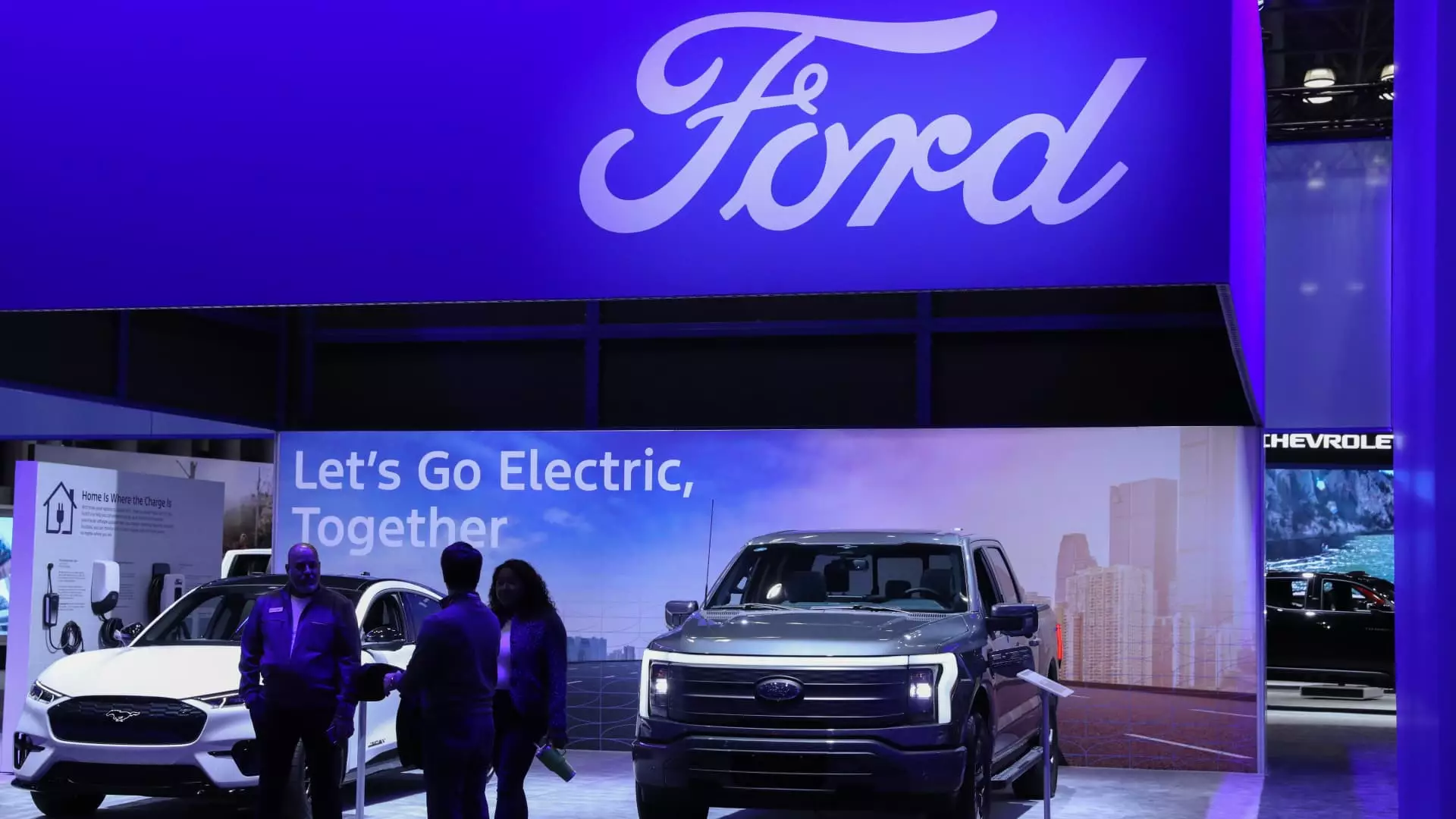Ford Motor recently announced a significant shift in its production plans, delaying the manufacturing of a next-generation all-electric pickup truck and canceling a three-row electric SUV. Instead, the company has decided to prioritize the development of hybrid models and electric commercial vehicles. This move signifies Ford’s commitment to delivering a capital-efficient and profitable electric vehicle business.
The decision to delay the production of the all-electric pickup truck and SUV was made in response to the changing marketplace dynamics. Ford CFO John Lawler emphasized the company’s competitive advantage lies in commercial land trucks and SUVs, prompting the shift in focus. The company plans to introduce a new electric commercial van in 2026, followed by two EV pickup trucks in 2027.
While the decision to prioritize hybrid models and electric commercial vehicles is aimed at improving Ford’s long-term profitability, it comes with short-term costs. The company expects to incur a special noncash charge of approximately $400 million for the write-down of certain product-specific manufacturing assets due to the cancellation of the three-row SUV. Additional expenses and cash expenditures of up to $1.5 billion are also anticipated.
Ford plans to adjust its future capital expenditure plans, decreasing spending on all-electric vehicles from 40% to 30%. This reallocation of resources reflects the company’s strategic shift towards hybrid models and electric commercial vehicles. While Lawler did not provide a specific timeline for the change, it is clear that Ford is reevaluating its investment priorities in light of market demands.
The new $5.6 billion Tennessee plant, initially slated for vehicle production next year, will now focus on manufacturing a full-size electric truck in 2027. Additionally, a new midsize truck is being developed by a specialized team in California. The company still expects to begin battery cell production at the Tennessee site in 2025, despite the changes in vehicle production timelines.
According to Lawler, the decision to pivot towards hybrid models and electric commercial vehicles is driven by customer feedback and market insights. Ford aims to provide customers with more electrification choices, aligning its product offerings with evolving consumer preferences in the electric vehicle segment. This customer-centric approach underscores Ford’s commitment to adapting to changing industry trends.
Ford’s decision to shift its focus to hybrid models and electric commercial vehicles marks a strategic realignment of its product portfolio. The company remains committed to updating its current lineup of all-electric vehicles, including the Ford Mustang Mach-E crossover and F-150 Lightning pickup truck. Ford plans to provide investors with an update on electrification, technology, profitability, and capital requirements in the first half of 2025, signaling its continued commitment to innovation and sustainability.

